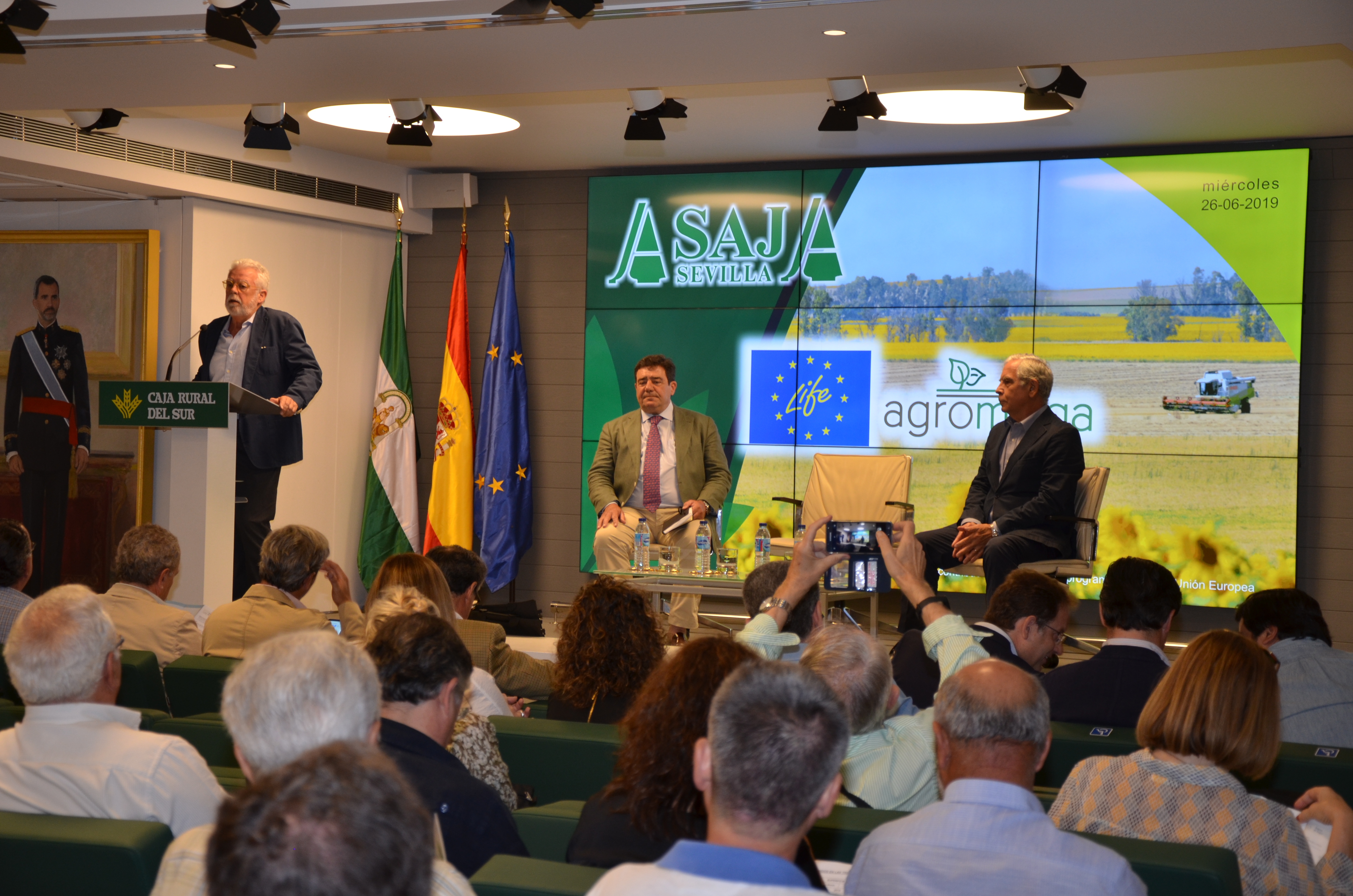The concern for the lack of rainfall and its impact on cereal, both in hard and soft wheat, as well as in sunflower, has been the main issue of the XXXI Herbaceous Cultivation Workshop of ASAJA-Sevilla held last 26 of June in the assembly hall of Fundación Caja Rural del Sur.
The president of ASAJA-Sevilla, Ricardo Serra, remarked the unbalanced yields of the current cereal campaign in Andalusia (with areas such as Lebrija or Las Cabezas, with 2000 kg, and others such as Écija, which exceed 3,000) and in the huge difference between the average andalusian yields and those of the rest of Europe, like those of Ireland, which exceed 9,000 kg per hectare, and forces the industry to reduce costs if they want to obtain some profitability.
The director of Asociación Española de Agricultura de Conservación, Emilio J. González, has presented the new LIFE-Agromitiga project to Andalusian farmers, to whom he recalled that the effects of greenhouse gases are increasing, and as a consequence , temperature increases between 5 to 7 degrees are expected until the year 2100 and a drop in rainfall of around 20%. In Andalusia, for example, in this campaign they are having a decrease of 30% in rainfall compared to 25 years ago.
The project, coordinated by the Spanish Association of Agriculture of Conservation – Living Soils (AEAC.SV), has the participation of ASAJA-Sevilla, the University of Córdoba, the Andalusian Institute of Agricultural Research and Training, Fishing, Food and Ecological Production (IFAPA), the Ministry of Environment and Territory Planning of the Junta de Andalucía and the European Federation of Conservation Agriculture (ECAF), plan to end their work by the end of 2022.
The LIFE Agromitiga project aims to contribute to the transition towards a low-carbon farming system, providing validated results, applicable to the international commitments of the European Union on climate change. It also seeks to dissociate CO2 emissions from the use of raw materials and natural resources, through conservation agriculture, incentivizing techniques that promote a circular agrarian economy.
The project has the financial support of the Environment and Climate Action Program (LIFE), which is the European Union’s financial instrument dedicated to the environment for the period 2014-2020.
